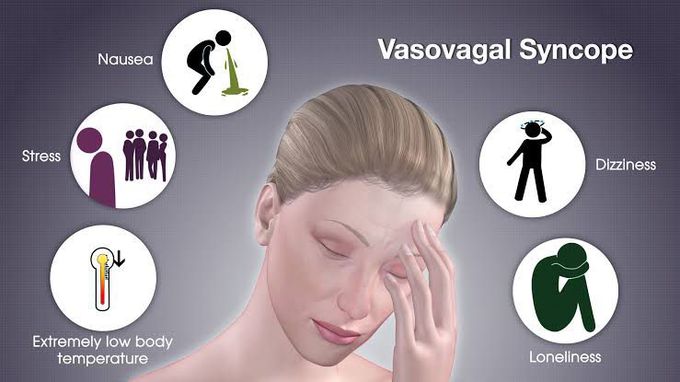


Treatment of vasovagal syncope
In most cases of vasovagal syncope, treatment is unnecessary. Your doctor may help you identify your fainting triggers and discuss ways you might avoid them. However, if you experience vasovagal syncope often enough to interfere with your quality of life, your doctor may suggest trying one or more of the following remedies: Medications. A drug called fludrocortisone acetate that's normally used to treat low blood pressure may be helpful in preventing vasovagal syncope. Selective serotonin reuptake inhibitors also may be used. Therapies. Your doctor may recommend ways to decrease the pooling of blood in your legs. These may include foot exercises, wearing compression stockings or tensing your leg muscles when standing. You may need to increase salt in your diet if you don't usually have high blood pressure. Avoid prolonged standing — especially in hot, crowded places — and drink plenty of fluids. Surgery. Very rarely, inserting an electrical pacemaker to regulate the heartbeat may help some people with vasovagal syncope who haven't been helped by other treatments.

